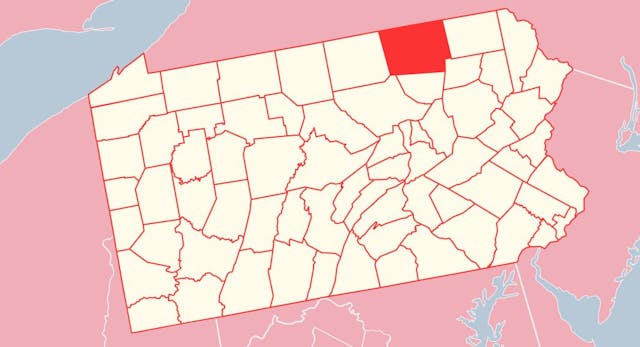Rehabs in Bradford
Bradford County was formed in Pennsylvania, US, on February 21, 1810. Towanda city is its seat. According to the 2020 census, the population was 59,967.
Bradford ranks as one of the lowest drug prevalence provinces in Pennsylvania. So, as to the County Health Rankings and Roadmaps, 19 people died from drug poisoning during 2018-2020. Meanwhile, 20% of residents abused alcohol.
Preventing the spread of drugs is possible only in one case, that is, within families and society. Therefore, Bradford County rehabs have adopted this mission. They reduce the risks by educating, informing, and providing services to every social group.
Drug and Alcohol Evaluation
All outpatient clinics conduct evaluations on addiction to substances. At first, it allows physicians to decide which treatment level will be best for a person. Then, addiction doctors plan the correct healing path according to patients’ needs.
Rehab Programs
Medical centers in this province provide all levels of programs to everyone who struggles with substance use disorder (SUD). They heal families, youth, and individuals to have healthy communities.
Inpatient (IP)
IP is a complex treatment with 30, 60, and 90-day care. This is a period during which patients can get rid of dependence. Indeed, in this entire way, they are supported by many healing methods and detailed plans. Each of them has its clear structure and goals.
Individual counseling allows doctors to know persons better and learn what approach they need. Next, they use it in practice.
Then, they learn communication skills through group therapy and peer support services. Based on that, they support and find solutions for each other. Thus, this step, in turn, contributes to the healing of each patient.
In addition, physical activities (yoga, swimming, hiking in nature) helps to recover the damaged body from chemicals.
Having achieved some stability, the participants are ready to transfer to one of the outpatient options.
Outpatient Programs (OPs)
Rehabs in Bradford County specialize in OPs. Those include general and intensive outpatient care. Doctors utilize different healing options and methods. Among them are:
Individual and group counseling
Family counseling
Aftercare
Peer support services
The group meetings take place in the mornings and evenings at both levels. Counselors help patients reach the goals that they have set at the beginning of treatment.
CASA-Trinity (Council on Alcohol and Substance Abuse) heals drug and alcohol addiction on an outpatient basis. It provides various services, such as intake evaluation and medication-assisted treatment (MAT), including counselors and therapies.
This clinic has specialty services for women with substance use disorder. It is based on the trauma recovery model. The address is:
100 Henry St.
Sayre, PA 18840
Phone: (570) 731-4534
Jail Programs
Clinics with Bradford County Drug and Alcohol Single County Authorities provide education plan group meetings for offenders with substance use disorder. It is called “A New Direction” and takes place once a week.
Specialists help offenders overcome criminal and addictive thinking. They are trained here for release and reintegration. Thanks to this program, they return to society as full and equal individuals.
Payment Options Without Insurance
Medical facilities accept most private health insurance plans. If someone does not have in-network coverage, he/she may pay the full fee through cash or cards.
Besides, some facilities offer a sliding fee scale. Additionally, residents can use Pennsylvania Medicaid and Medicare for their treatment.
Forcing Teens Into Rehabilitation
It is not easy to help a teen who has already abused substances. Parents can use several ways to help them. They may talk, explain or persuade them, turn to doctors, even though they may force them into rehab.
In any case, even if forced, parents act according to the law. Indeed, engaging minors in treatment is challenging. For that reason, clinics have programs supporting teens and their families. They even serve at schools and teach students to understand the risks of chemicals.
Specialists give young people tools and develop skills in them. Ultimately, they become stronger. Hence, they can acquire a negative character towards things that cause danger or conflict.

